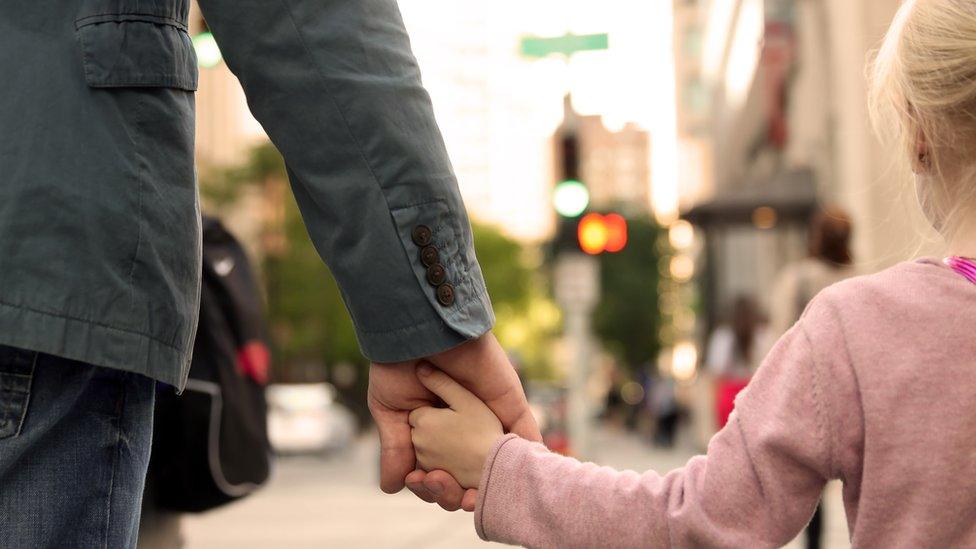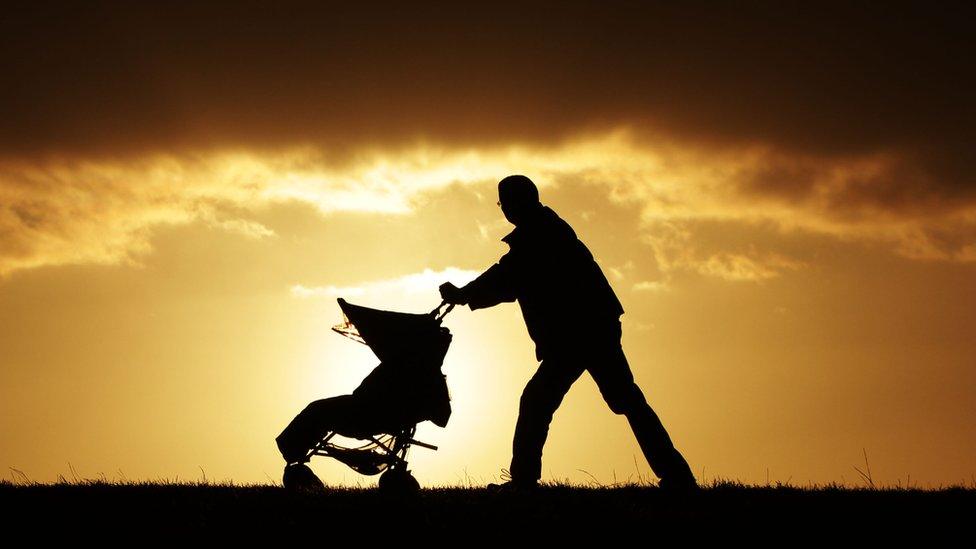Working single parents 'struggling to feed children'
- Published

The number of single parent families in poverty is expected to rise to 63% by 2021
A third of children with a working single parent live in poverty with some parents struggling to put food on the table, a charity has found.
Research by the charity Gingerbread suggested single parents are "trapped", external in low-paid and insecure jobs.
Although the number of employed single parents is at a record high, the risk of child poverty among these families has risen to its highest in 20 years.
Charity boss Rosie Ferguson hopes the report will be a "catalyst for change".
The study, released on Wednesday to mark the charity's 100th anniversary, revealed nearly half of single parents - both working and unemployed - live in relative poverty.
This figure is expected to rise sharply to 63% by 2021.
And of those families where the single parent is in work - 68% - a third of children are living in poverty.
The report found jobs with decent pay and flexibility are "few and far between" for single parents.
The government said it is supporting parents back into work by taking steps to double free childcare.
There are around 1.7 million single parent families in the UK, with one in four children living with one parent. Nine in 10 single parent families are headed by a woman.
'Aspirations are thwarted'
Ms Ferguson, chief executive of Gingerbread, said: "The findings of this report illustrate how single parents' aspirations can be thwarted by circumstances outside their control.
"Low-paid and insecure jobs, as well as the lack of affordable childcare, mean that some single parents struggle to put food on the table for their children."
She added: "The government must work with job centres, employers and childcare providers to ensure that work genuinely provides a route out of poverty.
"We need to strengthen the system of support for single parents to provide a decent standard of living for them and their children."
Gingerbread is calling for changes to the welfare system, stricter child maintenance rules and more support for parents in education or training.
'Utterly unacceptable'
The shadow work and pensions secretary, Debbie Abrahams, said it was "utterly unacceptable" adding: "Single parent families are paying the price for Conservative failure.
"The increase in child poverty is a direct result of this government's cuts to social security, changes to universal credit and their complete failure to tackle the scourge of low-paid, insecure work."
A spokesperson for the government said: "We recognise how challenging it can be for lone parents to juggle work and family life.


"That's why we've taken steps to double free childcare, and for the most in need paying up to 85% of their childcare costs under Universal Credit, to support parents back into work," they added.
"Children living in households where someone works are less likely to be in poverty and more likely to do well in school, compared to those growing up in workless households.
"Our support is all about ensuring every child and family has the best chances in life."
Gingerbread said its analysis was based on the UK government's poverty line, which states a household is in relative poverty if its income is below 60% of the median household income.
According to the Department of Work and Pensions, the median household income in 2015/16 was £413 per week after housing costs, or £21,600 annually, making the poverty line £13,000 or £248 per week.
People are considered to be in persistent poverty if they are in relative poverty for the current year as well as two of the last three years.
- Published27 March 2017

- Published30 March 2016

- Published21 February 2018
